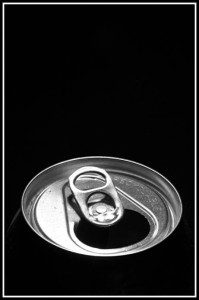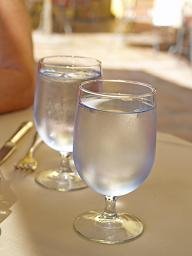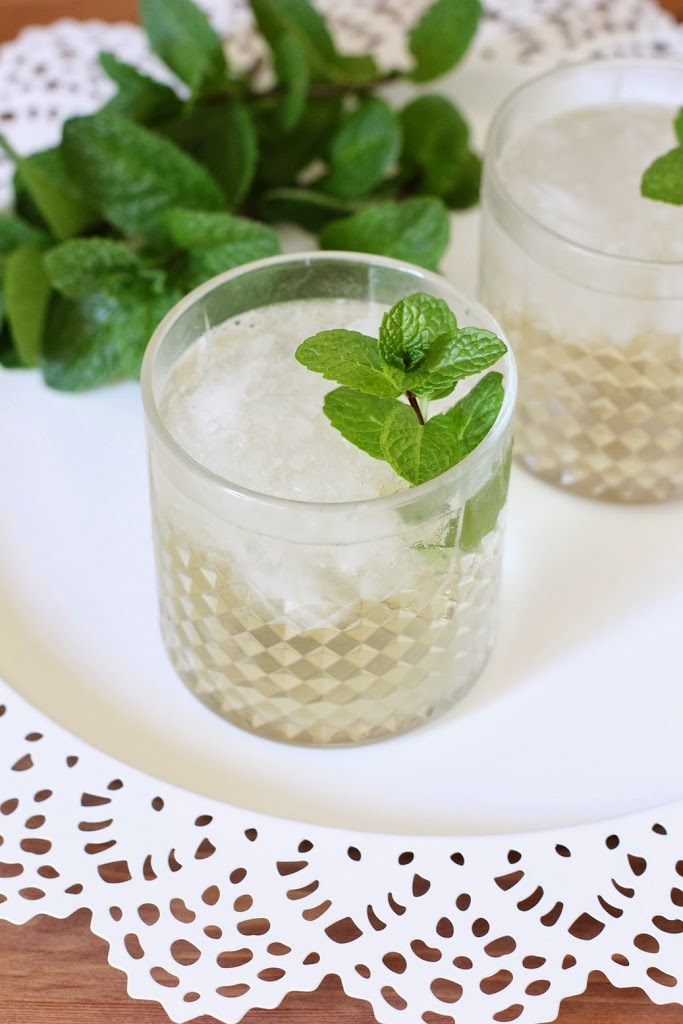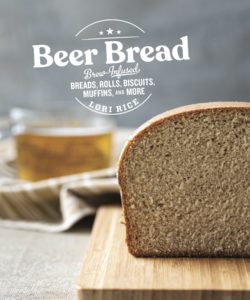 I’ve been blessed in the fact that I do not suffer from any food allergies. I am able to eat just about anything without any adverse reactions.
I’ve been blessed in the fact that I do not suffer from any food allergies. I am able to eat just about anything without any adverse reactions.
There is one little nagging thing that I get from time to time though – headaches. Of course, headaches aren’t always food induced, but I have discovered that some of mine are.
What causes these painful episodes? Sucralose.
I was first introduced to sucralose as an undergraduate student. It had just come out and was being heavily marketed as the new sugar replacement. Along with that came tag lines about how it was just like sugar because it was a derivative of sugar. Unlike other fake sugars you could also use the same amount in recipes as you would of standard white sugar.
At that time, I was enrolled in a food science course and we had to decide on a food experiment for the semester. It was a performance food experiment. This meaning we had to make foods using different methods and the measure how they turned out based on taste, viscosity and many other factors that I can’t bring to mind at the moment. Apparently what I learned in that course didn’t stick with me, but I loved it at the time.
I chose to use sucralose in my experiment. I made 3 different loaves of banana bread. One with all sugar, one with ½ sugar and ½ sucralose and one with all sucralose. At that time, as far as taste went, I thought the one made with sucralose was the best.
My preferences have definitely changed.
Now in addition to an aftertaste that I just can’t handle, sucralose gives me headaches. Shortly after I eat or drink anything containing it I feel a bit nauseated and then the headache starts.
Thinking this was all in my head I’ve tried many different forms – soda, yogurt, ice cream. It all has the same result. Even when I unknowingly drink a soda that contains it, on comes the headache.
I’ve recently realized that except for the aching, it is not all in my head. Initial research shows that sucralose can induce headaches in some people.
Previous research has shown that aspartame can do the same thing. It can cause the release of brain chemicals which result in the swelling of blood vessels and head pain.
I’ve never had this problem with aspartame, but since I’ve gotten away from ingesting it regularly through diet sodas I find when I occasionally have one it makes me feel bad. Just sluggish and tired.
I’m wondering if I might not be the only one who has these problems. Advertising for sucralose in its commercial form has drastically decreased from what I can tell. There was a time when all the new products were promoting the fact that they contained it. In addition, sucralose itself was being sold for baking and even in brown sugar form.
It is definitely one thing I would not be sad to see go. I avoid it like the plague. It is amazing to realize how many products contain it when you start trying to eliminate it. It still seems to be everywhere.
Photo by Gamerzero, morguefile.com






I like to say sucralose, not Splenda, because that is what Splenda is. And it is in a lot of stuff. The package doesn’t have to say Splenda to have sucralose in it. You have to read labels.
About 3 years ago…
Every morning at work, I would make myself a cup of coffee. I mixed two packets of Splenda® in my coffee. In addition, I used Coffeemate sugar free French Vanilla liquid creamer, which also contains sucralose. I would drink two to four cups of coffee a day.
My anxiety was extreme and I could not stand it anymore. The best way to describe the way I felt after drinking one cup of coffee with sucralose in it was that it was like drinking six cups of coffee. My heart was pounding and my anxiety was soaring.
I decided to stop using caffeine and start drinking decaffeinated coffee hoping that this will help. Therefore, one Monday morning, I started drinking decaffeinated coffee. I made it the same way I did with the caffeinated coffee, two packets of Splenda and Coffeemate creamer. After drinking it, I felt exactly the same way. I complained to the person in my office, who is responsible for ordering the coffee, that, the decaffeinated coffee she purchased was not decaffeinated but was really coffee that had caffeine in it.
I continued to drink the decaffeinated, without any reduced nervousness.
Frustrated, I decided to drink caffeine free chamomile tea. I picked this type of tea because it is supposed to have a calming effect. I made the tea with two packets of Splenda® and no creamer. After drinking the tea, the overwhelming anxiety started up again. This is when I finally realized that the only thing that was the same between all of these drinks was the Splenda®!
I immediately stopped using Splenda in my coffee. It was amazing. The overwhelming anxiety went away immediately.
I used sucralose for 6 years and I had a number of medical problems as a result. Ready for this: Overwelming anxiety, depression, mood swings, confusion, memory losses, diarrhea, constipation, cramps, fatigue, back pain, joint pain, numbness in arms and legs, blurred vision, insomnia and heart palpitations.
I went to a gastroenteroligist, had a colonoscopy, and other gastrointestinal test. I was put on medication for about 3 years.
I went to a psychiatrist and was put on antidepressants and anti anxiety medication.
My back pain and the other symptoms, I just dealt with.
I contributed all my problems to the natural aging process.
Today, I feel a whole lot better. Although, I believe I have suffered long term effects of taking sucralose. I learned that the FDA does not protect the American people. That sucralose is a poison.
It saddens me to see that children are using this stuff. That there are hundreds, maybe thousands of people who are using it, have medical problems and don’t even know that they are caused by what is in those yellow packets.
carbon monoxide – made from oxygen so its like a breath of fresh air.
Hi bobby –
Thanks for your comment. What an interesting thing you experienced. I’m glad you were able to figure out that it was the sucralose. I use the chemical name because I try not to single out any commercial names in my writing.
I wonder if there are any research studies out there linking it to more than just headaches. All that is involved with FDA and politics is very complicated, that is for sure.
In health,
Lori
Lori,
We are addicted to Splenda!!
We buy it in bulk at Sam’s, we use it on everything…
As a nutricionist, would you recommend replacing it for white sugar? organic granulated? organic brown?
In your opinion, what is the best choice to sweet your food? both for baking needs and drinks?
We live in New England and drink chamomile and “erva doce” tea before bed every night…
We have always been concerned about the health side effect of using Splenda on everything!
Please help!!
Regards
Ray Adkins
For many reasons, I cannot make a recommendation to you as to what your best choice would be. All I can tell you is what I use. Personally I use white sugar and honey to sweeten most things.
Many people would argue the white sugar because it is processed, but in moderation I don’t have a problem with eating it. I’m not a big buyer of all things organic, but I’d be willing to try them. They might be better than the white sugar.
Simply put, I feel that most things are better sweetners than products that are chemically constructed. However, there are certain medical conditions that might call for these variations, but that is for a doctor or an RD to decide.